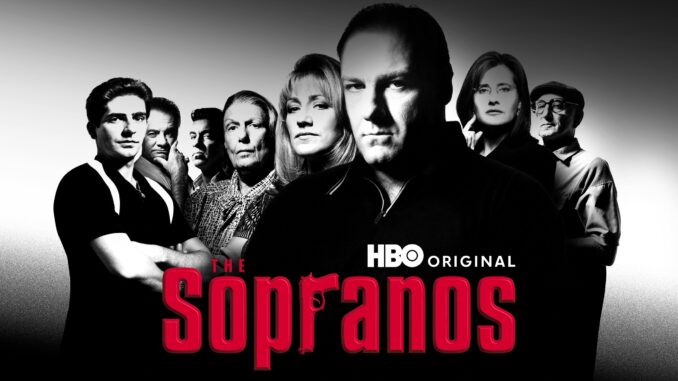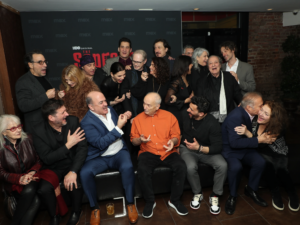
In a 2019 interview with Sight & Sound Magazine, Martin Scorsese stated that he couldn’t identify with the characters of The Sopranos, and only ever made it through one episode of the series. As a quintessential figure behind the gangster film genre, Scorsese seems like a perfect candidate to be a fan of the series. Showrunner David Chase was highly influenced by Scorsese’s work when creating The Sopranos and even featured a “cameo” from a fictionalized Scorsese in The Sopranos season 1, episode 2, “46 Long.”
Throughout its six-season run, The Sopranos featured actors from Scorsese films like Goodfellas, most notably Lorainne Bracco and Michael Imperioli, who both had roles in the film. The acclaimed series also undoubtedly takes inspiration from Scorsese’s filmmaking, following a similar type of violent and tragic male protagonist who wouldn’t be out of place in Goodfellas or Casino. Despite all of this, Scorsese himself was never able to connect with the show.
Martin Scorsese Couldn’t Identify With The Sopranos Characters
Scorsese told Sight & Sound Magazine that he was put off from The Sopranos because he couldn’t initially identify with Tony Soprano’s generation of the mob. Scorsese grew up in the Little Italy neighborhood of Manhattan in the 1940s and 50s, and this upbringing is what has inspired many of his films about the city’s criminal underworld. Tony Soprano, on the other hand, lives in suburban New Jersey in a large home, demonstrating the vast changes in the lifestyle of a New York City mobster from Scorsese’s childhood to the 21st century.

Scorsese also stated that he couldn’t wrap his head around the language that The Sopranos characters used in the series. He found it shocking that the mobsters used “four-letter-words” in front of their families and children, instead of using more conservative or euphemistic language that would’ve been more popular during his upbringing. While these criticisms may seem superficial, it makes sense that Scorsese would initially be driven away from the show because it didn’t represent the lifestyle he related to the most.
Why Martin Scorsese’s Sopranos Criticism Doesn’t Make Sense
Despite the superficial differences between Scorsese’s vision of the mob and the depiction of Tony Soprano, there are still obvious similarities between Scorsese’s work and the series, even including story similarities between The Sopranos and Goodfellas. Unlike Tony Soprano, the typical Scorsese protagonist probably wouldn’t seek therapy, but many of his most prominent men face the same pressures of toxic masculinity and maintaining the double life of a dangerous criminal and a family man. Even Scorsese’s non-mafia-related films, such as Raging Bull, depict the internal conflict that arises when violence defines a male protagonist’s success but also leads to his downfall.
The strangest part of Scorsese’s criticism is that, while the era of The Sopranos is different from when he grew up, it is not far removed from Goodfellas, and Scorsese’s films have explored many different time periods. When Scorsese stated his opinion, he had just completed The Irishman, his 2019 epic in which the characters speak of their criminal actions almost entirely in clever euphemisms, and lead a working-class, inner-city lifestyle. This film illustrates the clear generational gap, but it once again takes on many similar themes as The Sopranos. Perhaps if Scorsese had looked past his generational differences and kept watching, he could’ve been a fan of the series.
